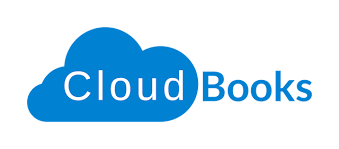In today’s fast-paced business environment, managing finances efficiently is critical for long-term success. Accurate record-keeping, tax compliance, and timely financial decisions are essential for businesses of all sizes. One of the most transformative tools in modern accounting is cloud-based accounting software, often referred to as cloud books. When paired with effective VAT (Value Added Tax) management, cloud books streamline processes, reduce errors, and save time, making financial management more straightforward and efficient.
Understanding Cloud Books
Cloud books are accounting systems hosted on online servers, accessible via the internet. Unlike traditional desktop software, cloud accounting allows businesses to manage their finances from any device with internet access. This flexibility, combined with automation and real-time data, makes cloud accounting a game-changer for small and medium-sized enterprises (SMEs).
Key Features of Cloud Books:
- Real-Time Accounting: Transactions are updated instantly, giving business owners and managers an accurate snapshot of finances at any given moment. This real-time visibility supports better decision-making and reduces the risk of errors from outdated data.
- Accessibility: Cloud accounting enables access from anywhere, whether in the office, at home, or on the move. This is particularly valuable for businesses with remote teams or owners who travel frequently.
- Automatic Updates and Compliance: Cloud software updates automatically, including changes to tax regulations. This ensures that businesses remain compliant without the need for manual software upgrades.
- Collaboration: Multiple users can access the same financial data simultaneously. Accountants, bookkeepers, and business owners can collaborate efficiently, improving workflow and accuracy.
- Data Security: Leading cloud accounting providers use encryption, secure servers, and regular backups to protect sensitive financial data from unauthorized access or loss.
Popular platforms like Xero, QuickBooks Online, Sage Business Cloud, and FreeAgent have become essential tools for modern businesses, offering robust features that make financial management simpler and more effective.
Understanding VAT and Its Significance
Value Added Tax (VAT) is a consumption tax applied to most goods and services in the UK. Businesses with taxable turnover above the VAT registration threshold—currently £85,000—must register with HM Revenue & Customs (HMRC) and submit regular VAT returns. VAT returns report how much tax a business has charged customers (output tax) and how much it has paid on business purchases (input tax). The difference determines whether the business owes money to HMRC or is due a refund.
Challenges in VAT Management:
- Complex Calculations: VAT rates differ depending on the goods or services, and some items may be exempt or zero-rated, making calculations more complex.
- Strict Deadlines: VAT returns are usually filed quarterly. Late submission or errors can lead to penalties or fines.
- Accuracy Requirements: Manual bookkeeping increases the likelihood of errors, which may result in compliance issues or audits.
- Record-Keeping: Businesses must maintain records for at least six years, requiring organized and easily accessible documentation.
How Cloud Books Simplify VAT Returns
Cloud accounting software has revolutionized VAT management by automating calculations, organizing transactions, and allowing digital submission directly to HMRC through the Making Tax Digital (MTD) initiative.
Benefits of Cloud Books for VAT Returns:
- Automatic VAT Calculations: Cloud systems automatically calculate VAT for sales and purchases, categorize transactions correctly, and minimize errors.
- Digital Submission: MTD-compliant platforms enable direct submission of VAT returns to HMRC, eliminating the need for manual paperwork and reducing filing errors.
- Real-Time Insights: Business owners can monitor VAT liabilities and potential refunds throughout the reporting period, ensuring they are prepared for submission deadlines.
- Organized Record-Keeping: Cloud accounting software stores invoices, receipts, and transaction records digitally, making audits and financial reviews straightforward.
- Error Reduction: Automation reduces human error, ensuring accurate VAT reporting and regulatory compliance.
Choosing the Right Cloud Accounting Platform
Selecting the appropriate cloud accounting software is crucial for effective VAT management. Consider the following factors:
- Ease of Use: The platform should be intuitive, with a simple interface suitable for users without accounting experience.
- Integration: The software should work with other business tools, including e-commerce platforms, payment systems, and payroll software.
- Compliance: Ensure the platform is compatible with MTD and adapts to VAT regulation changes in the UK.
- Cost: Cloud accounting typically operates on a subscription model. Consider the value of automation, accuracy, and time saved against the cost.
- Support and Training: Reliable customer support and available tutorials help businesses maximize the software’s capabilities.
Best Practices for Managing VAT Returns with Cloud Books
- Regularly Update Records: Ensure all transactions are entered promptly to maintain accurate VAT calculations.
- Reconcile Accounts Monthly: Regular reconciliation of bank accounts and transactions helps capture all VAT-relevant data.
- Monitor VAT Reports: Review VAT liability reports regularly to identify discrepancies before submission deadlines.
- Leverage Automation: Use features like recurring transaction rules and automated VAT categorization to reduce manual work.
- Backup Data: Even with cloud security, keeping an additional backup ensures financial records are safe.
- Consult a Professional: While cloud books automate much of the process, accountants provide guidance on complex VAT scenarios and ensure full compliance.
The Future of Cloud Accounting and VAT Management
Cloud accounting is evolving rapidly. Technologies like artificial intelligence (AI) and machine learning are being incorporated to automatically categorize transactions, detect anomalies, and provide predictive financial insights. Integration with real-time government tax portals allows faster and more accurate VAT submissions, reducing administrative burdens and stress.
Mobile access, predictive analytics, and detailed reporting tools are becoming standard, making cloud books indispensable for businesses looking to streamline financial operations. For VAT compliance, these tools provide confidence that returns are accurate and deadlines are met.
Conclusion
Cloud books have transformed the way businesses manage their finances. By offering real-time accounting, automation, and digital integration with HMRC, cloud accounting software makes VAT management simpler, faster, and more reliable.
VAT returns, once a time-consuming and error-prone process, can now be handled efficiently and accurately using cloud platforms. Businesses save time, reduce mistakes, and gain better insight into their financial health.

